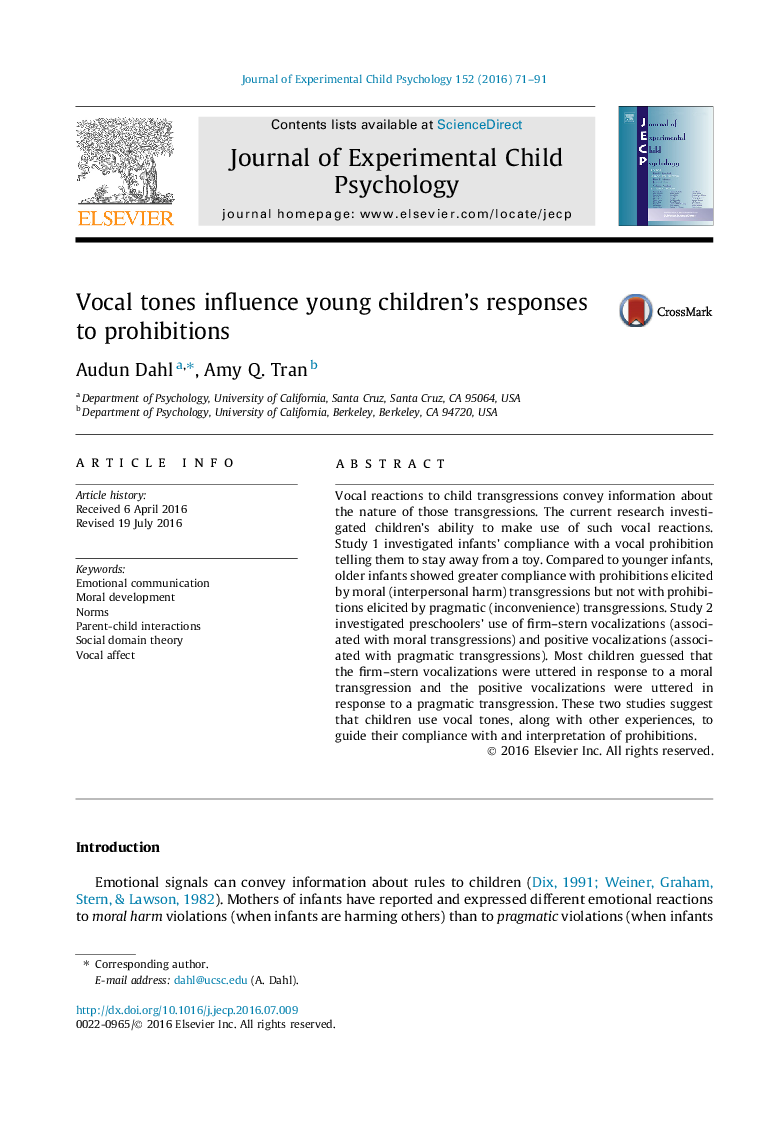| Article ID | Journal | Published Year | Pages | File Type |
|---|---|---|---|---|
| 917848 | Journal of Experimental Child Psychology | 2016 | 21 Pages |
•Vocal signals convey information about rules.•Preschoolers distinguish between moral and pragmatic rules.•Two studies investigated children’s use of adult vocal responses to transgressions.•Infant compliance was influenced by vocal tone of the prohibition (Study 1).•Preschoolers interpretation of prohibitions also depended on vocal tone (Study 2).
Vocal reactions to child transgressions convey information about the nature of those transgressions. The current research investigated children’s ability to make use of such vocal reactions. Study 1 investigated infants’ compliance with a vocal prohibition telling them to stay away from a toy. Compared to younger infants, older infants showed greater compliance with prohibitions elicited by moral (interpersonal harm) transgressions but not with prohibitions elicited by pragmatic (inconvenience) transgressions. Study 2 investigated preschoolers’ use of firm–stern vocalizations (associated with moral transgressions) and positive vocalizations (associated with pragmatic transgressions). Most children guessed that the firm–stern vocalizations were uttered in response to a moral transgression and the positive vocalizations were uttered in response to a pragmatic transgression. These two studies suggest that children use vocal tones, along with other experiences, to guide their compliance with and interpretation of prohibitions.
